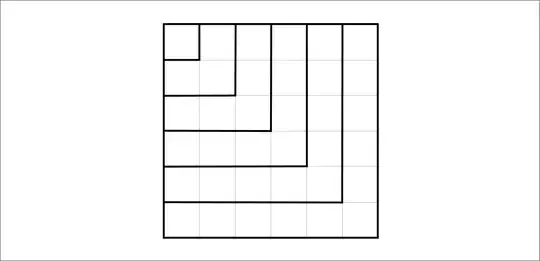Another way of looking at is ...
$$\begin{align}&1 + 3 + 5 + {\dots} + 2n - 1 \\
&= (n - (n - 1)) + {\dots} + (n - 4) + (n - 2) + n + (n + 2) + (n + 4) + {\dots} + (n + n - 1)\\
&= n + n +n + {\dots} +n (n times)\\
&= n^{2}\end{align}$$
It can also be proved with the sum of arithmetic progression. The sum of an $A.P.$ with $n$ terms, difference $d$, and initial term $a$.
$$\begin{align}T_1 &=a\\
T_2 &=a + 2d\\
.\\
.\\
.\\
T_n &= a + (n-1)d\end{align}$$
Adding all these terms,
$$\begin{align}S &= na + d(1+2+{\dots}+n-1)\\
S &= na + \frac{n(n-1)d}{2}\\
S &= \frac{n}{2}(a + a + (n-1)d)\\
S &= \frac{n}{2}(a + T_n)\end{align}$$
Applying this to our series,
$$\begin{align}S &= \frac{n}{2}(1+2n - 1)\\
S &= n^{2}\end{align}$$
This property of odd numbers was used to generate Pythagorean triplets by Fibonacci.
$1$. Pick an odd number and square it. The number chosen in $m$.
$2$. $m^2$ also lies in the series. Take the sum of all odd numbers before $m^2$. It is $(\frac{(m^2-1)}{2})^2$
$3$. Adding these two numbers will also be a perfect square. $m^2 +(\frac{m^2-1}{2})^2 = \frac{m^4 +2m^2+ 1}{4} = (\frac{m^2 + 1}{2})^2$
The numbers, $m, \frac{m^2-1}{2}, \frac{m^2+1}{2}$ are a Pythagorean triplet, wherever m is odd.
